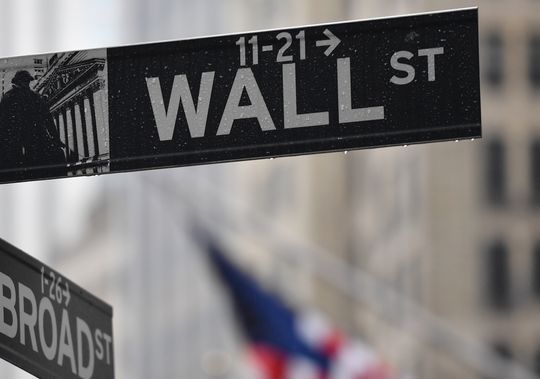U.S. stocks finished higher Monday, sending the Dow and S&P 500 to their highest closes in more than a month, as investors assessed weaker-than-expected economic data and the possibility that the Federal Reserve might pull back on aggressive rate increases by year-end.
What happened
- The Dow Jones Industrial Average DJIA, +1.34% finished up by 417.06 points, or 1.3%, at 31,499.62. That’s the highest closing value since Sept. 12.
- The S&P 500 SPX, +1.19% ended up by 44.59 points, or 1.2%, at 3,797.34. That’s the highest closing value since Sept. 20. The index is up 6.2% from a nearly two-year low set on Oct. 12.
- The Nasdaq Composite COMP, -7.32% finished up by 92.90 points, or 0.9%, at 10,952.61 after shaking off a morning decline.
The Dow rose 4.9% last week and the S&P 500 advanced almost 5% for their largest such gains since the week that ended June 24. The Nasdaq Composite gained 5.2% last week, its biggest rise since the week that ended July 29.
What drove markets
Once again, investors clung to hopes of a Fed pivot — this time, driven by Friday’s report in The Wall Street Journal, which said that the Federal Reserve is likely to use its November meeting to debate whether to trim the size of its rate hike in December. Fed policy makers are currently in a blackout period, with no fresh comments expected this week ahead of their two-day rate-setting meeting that ends on Nov. 2.
Monday’s data batch brought a “meltdown” in the purchasing managers indexes for Europe and the U.S., where the readings were worse than expected, according to Jay Hatfield, chief executive of Infrastructure Capital Advisors in New York. That data, along with The Wall Street Journal article, were the reasons for the stock market’s continued rally “as investors become more optimistic that the Fed will back off from its ultra-hawkish policies,” he said via phone.
“Our thesis is that the Fed is going to have to back off” or risk causing a global recession, Hatfield said. He noted that Monday’s stock rally was accompanied by a periodic rally in bonds on “expectations for a more dovish Fed.”
In the U.K., yields fell as ex-hedge-fund manager and former Chancellor of the Exchequer Rishi Sunak became Conservative Party leader, clearing the way for him to succeed Liz Truss as the next prime minister.
Markets are also gearing up for a wave of earnings reports, including from tech giants Alphabet GOOGL, Microsoft MSFT, Meta Platforms META, Apple AAPL and Amazon AMZN this week.
The first full week of the earnings season ended on a strong note Friday, which sent stocks sharply higher. Equities are now building upon last week’s gains after “a positive tone from major corporate earnings,” said Fiona Cincotta, senior financial markets analyst at City Index.
“Earnings have largely been positive, particularly in the banking sector. However, this week is likely to be the big test as around a third of S&P 500 companies are due to report this week. Big tech will be in focus,” Cincotta wrote in an email.
Overseas, Hong Kong’s Hang Seng Index HK:HSI ended 6.4% lower at a new 13-year low, while Chinese tech shares were also dragged down, as markets reacted to the consolidation of power by President Xi Jinping, who was confirmed to a historic third term.
China’s yuan fell sharply in offshore dealings against the dollar CNHUSD, -0.46% and was on track for its biggest one-day fall since August 2019, according to Dow Jones Market Data. In addition, the pair was at its lowest rate of exchange on record as of Monday, based on data going back to 2010.
Xi’s confirmation suggests “a continuation of current policies aimed at ‘modernizing’ the country and deterring ‘separatists,’” said economists Lindsey Piegza and Lauren Henderson at Stifel, Nicolaus & Co. “Xi has also been clear that a continuation of the country’s Zero-Covid policy is necessary to protect the greater good of the populace.”
Companies in focus
American depositary receipts of Alibaba Group Holding Ltd BABA ended down by 12.5%, while JD.com Inc. JD dropped 13% and Baidu Inc. BIDU finished lower by 12.6% as investors reacted to the conclusion of the Chinese Communist Party congress.
Tesla Inc. shares TSLA finished down by 1.5% after the company’s Chinese website showed that the electric-vehicle maker cut prices in China.
Schlumberger Ltd. SLB, +3.45% said Monday it has changed its name to SLB to underscore its shift from an oil-services company to a business focused on decarbonized energy. Shares finished up by 3.5%.

